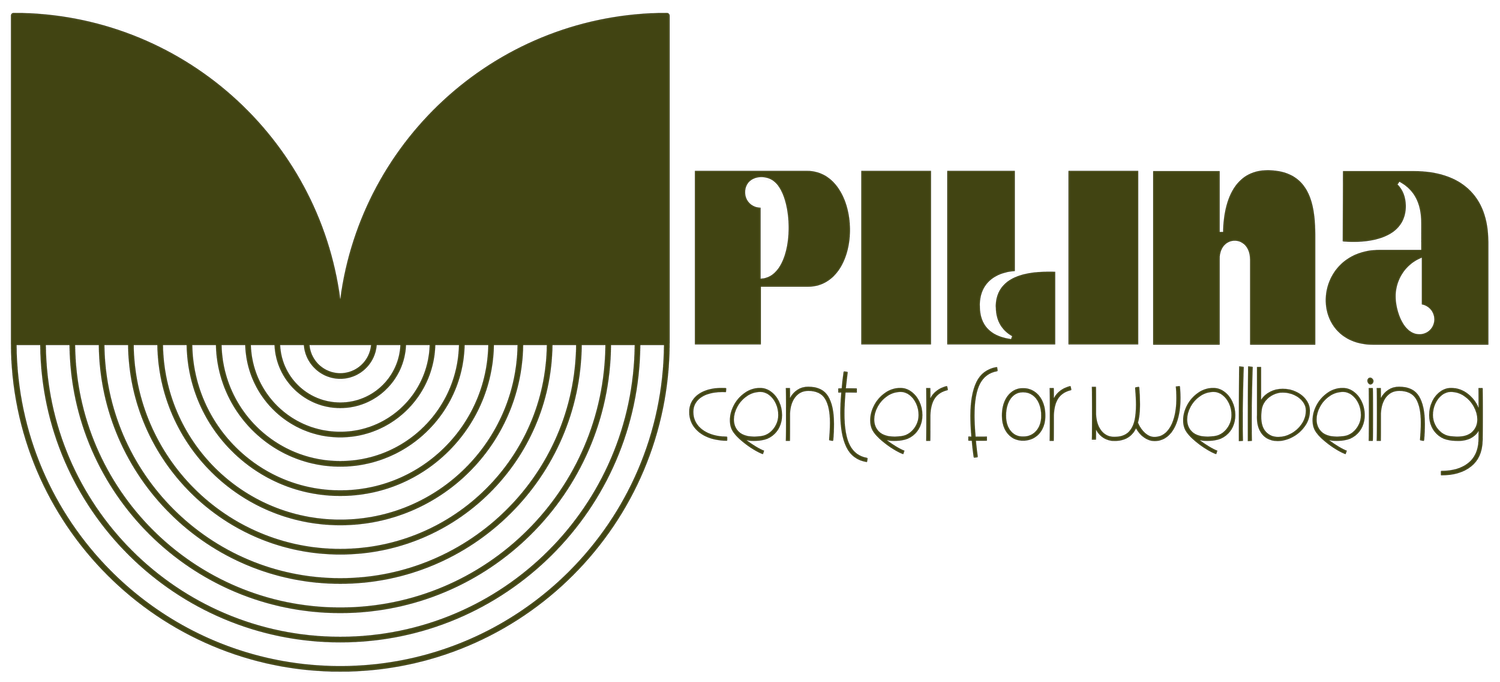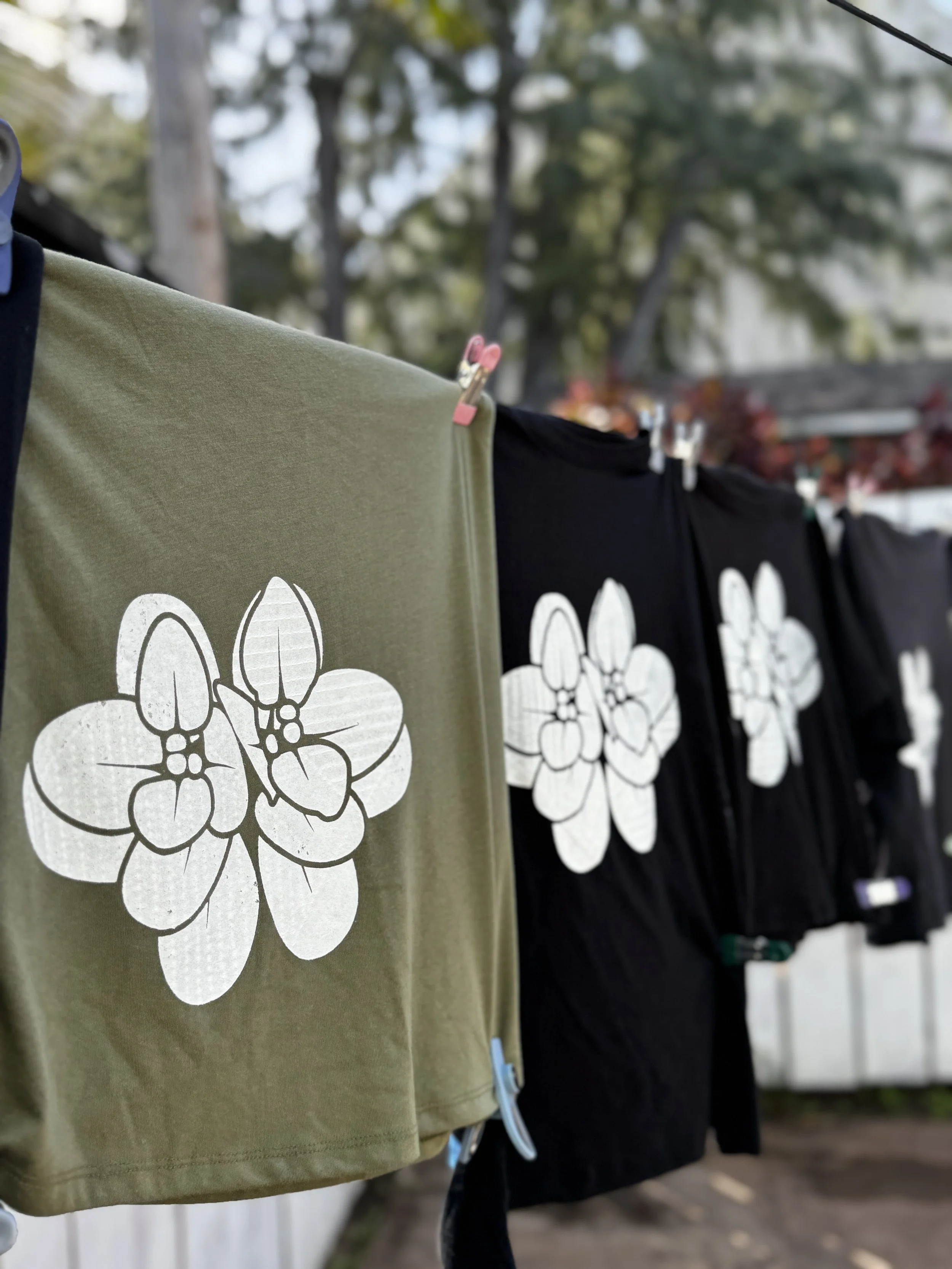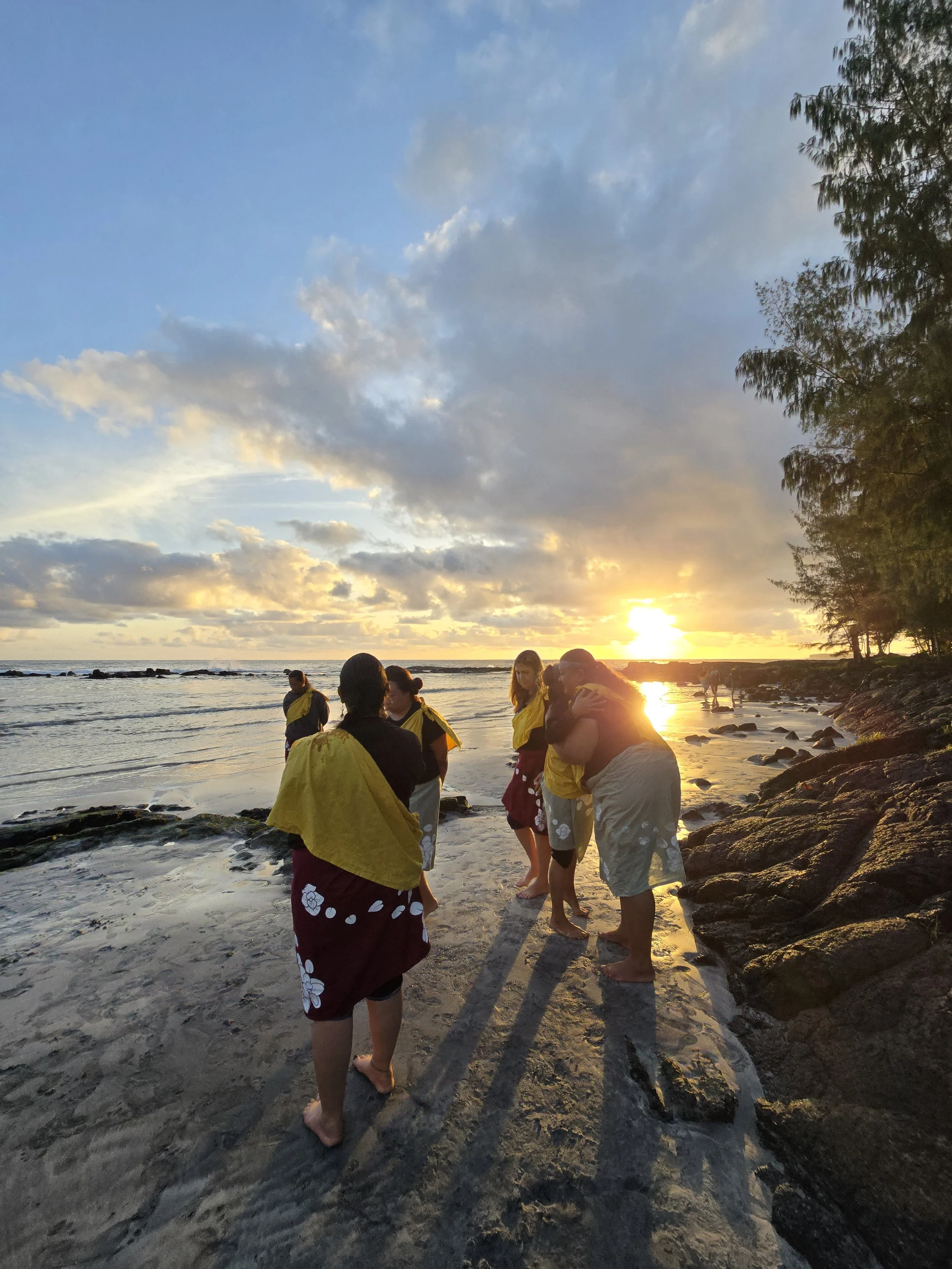A Culturally Sustaining Evaluation for Papa Ola Lōkahi’s Ola Ka Huakaʻihele o Hiʻiaka Program
The Pilina Center for Wellbeing recently completed a comprehensive formative evaluation of Ola Ka Huakaʻihele o Hiʻiaka, a five-month train-the-trainer initiative rooted in Hawaiʻi lifeways and the Kaʻao Framework to support substance use prevention, healing, and community wellbeing. Designed and led by cultural practitioners and educators, it equips participants with the knowledge, skills, and cultural grounding to guide healing in their own contexts. The evaluation—conducted in close collaboration with program facilitators, participants, and community partners—reflects the Center’s signature approach: relationship-based, culturally sustaining, and designed to inspire transformative action.
From the outset, Pilina Center’s team worked alongside program leaders - Lilinoe Kauahikaua, Aunty Kekuhi Kealiʻikanakaole, Kauilanuimakehaikalani Kealiʻikanakaʻoleohaililani, and Camille McComas - walking beside them as both evaluators and program participants. This eval’s dream team included Jo, Mei Linn, Paula, and Val.
Rather than relying solely on conventional metrics, the evaluation honored ʻike kūpuna (ancestral knowledge) and centered Kanaka ʻŌiwi values such as kuleana (responsibility), pilina (relationship), and aloha ʻāina (love for the land). This meant that evidence of success was defined by the community itself, not by external templates.
Honoring ʻŌhiʻa and preparing for the program!
A Relational and Culturally Grounded Process
The evaluation embraced Indigenous methodologies, in alignment with Aunty Manu Meyers’ Hawaiian hermeneutics, integrating both quantitative tools and culturally sustaining practices. This included talk story, ceremony, oli (chant), and place-based observation (kilo). Data were gathered through surveys, interviews, focus groups, and participant kilo across multiple huakaʻi (journeys) and process sessions. Photos, stories, and creative expressions were considered as valuable as numerical data, reflecting a Makawalu approach that sees truth from many directions.
Throughout the process, evaluators applied a research as ceremony mindset, ensuring that each interaction strengthened trust and reciprocity, honoring the spiritual at every step, and ultimately leading to naʻauao. This was not evaluation “on” a program, but “with” and “for” lāhui—supporting learning, adaptation, and mauli ola.
Collaboration in Action
Pilina Center’s role went beyond data collection. The team served as thought partners, helping facilitators create their Theory of Change, design the curriculum, adjust program pacing in response to participant needs, and document adaptations that preserved the program’s integrity. Continuous communication kept the evaluation responsive, while shared debriefs allowed insights to be woven back into implementation in real time.
Importantly, the process created space for participants’ voices to shape the story. Their reflections, experiences, and cultural expressions were not just “input” but central to understanding program dynamics and potential. By integrating these perspectives, the evaluation became a living record of both the journey and the lessons learned along the way.
H Ā ʻ E N A
This project demonstrates unique strengths:
Cultural Sustainability – Deep grounding in Indigenous and Kanaka ʻŌiwi worldviews ensures evaluations honor cultural protocols, values, and ways of knowing.
Participatory Approach – Stakeholders are active co-creators in shaping evaluation questions, methods, and interpretation.
Methodological Rigor with Flexibility – Quantitative, qualitative, observational, and experiential tools are applied in ways that respect cultural context, adapt to emerging needs, all while maintaining analytic integrity.
Transformative – Activities and interpretations align with the transformative paradigm, fostering change that communities find meaningful and contribute to systemic change.
By blending professional expertise with cultural humility, Pilina Center for Wellbeing delivers evaluations that do more than measure—they strengthen pilina, restore cultural pathways, and support lasting impact.
Organizations seeking evaluation or consulting services that are both rigorous and relational will find in Pilina Center a trusted partner—one who listens deeply, adapts skillfully, and walks the path of transformation alongside you.
Pilina Center for Wellbeing recently completed a culturally grounded evaluation of Ola Ka Huakaʻihele o Hiʻiaka, a train-the-trainer program rooted in Hawaiʻi lifeways. Working in close partnership with program leaders and participants, the evaluation blended rigorous methods with Indigenous approaches like talk story, oli, and place-based observation. The process honored community definitions of success, turning data into a living record of relationships, learning, and cultural integrity. Read the full story to see how Pilina Center partners with organizations to create evaluations that inspire lasting change.


